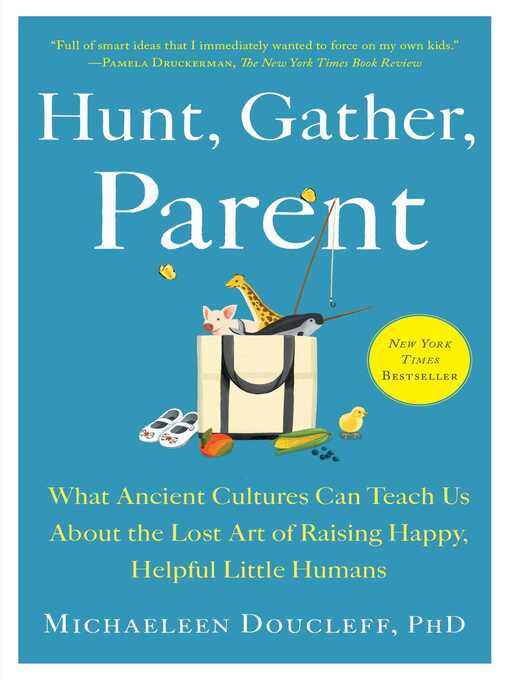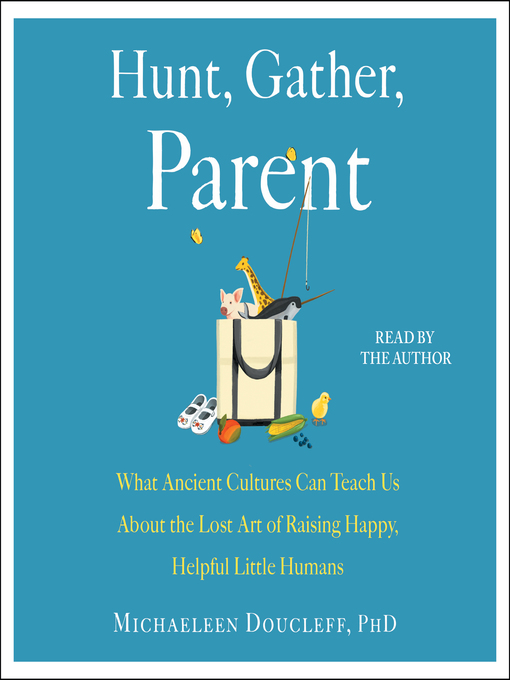Review by Booklist Review
This entertaining and eye-opening look at child-rearing from NPR science reporter Doucleff turns several current parenting trends on their heads. Writing with wit and authority, Doucleff explains how various western theories first came into practice and details how these approaches vary from those in much of the rest of the world. In comparison, Doucleff cites practices that spring from three Indigenous cultures, in their modern iterations: the Mayan concept of helpfulness; the calmness inherent in Inuit society, and the autonomy nurtured by the Hadzabe people of Tanzania. Doucleff offers her own daughter, Rosie, as a test subject. Rosie, a typical strong-willed, vocal, and highly opinionated toddler, accompanied Doucleff on her fact-finding trips, resulting in several anecdotes describing the improvements in Rosie's behavior after the introduction of various hunter-gatherer strategies. Many chapters provide reasonable plans for phasing these same strategies into common American household routines, along with suggestions on how to defuse contentious situations, helpfully sorted according to age group. Doucleff's tone is often breezy, but she acknowledges the real need for help, citing the isolation and even desperation many parents feel. This is practical advice backed up by field research and hands-on parenting, in other words, just what house-bound families need.
From Booklist, Copyright (c) American Library Association. Used with permission.
Review by Publisher's Weekly Review
Doucleff, a correspondent for NPR's Science Desk, debuts with a lively account of traveling with her three-year-old daughter Rosy "to the corners of the world" to research parenting techniques. Through interviews and anecdotes, Doucleff pieces together a universal parenting approach that "has been tested for millennia... across six continents" and is composed of four elements: togetherness, encouragement, autonomy, and minimal interference. In the Yucatan, Doucleff observes a familiar morning routine--getting children ready for school--unfold with no chaos, and in watching the children help one another, learns how to "transmit the value of helpfulness to a child." During a visit to Kugaaruk, a small village in the Canadian arctic, Doucleff watches the effect of anger-free parenting in raising children who act thoughtfully. And during a brief stay outside the plains of the Serengeti, she witnesses the Hadzabe peoples' "gift economy," and how parents teach their children self-sufficiency, kindness, and respect by allowing them to set their own agendas. Doucleff includes specific and manageable instructions for parents ("Start with a daily time-out from entertaining and instructing your child," for example), and end-of-chapter summaries include extra resources. Parents will find Doucleff's curiosity contagious and guidance encouraging. Agent: Alex Glass, Glass Literary Management. (Mar.)
(c) Copyright PWxyz, LLC. All rights reserved
Review by Kirkus Book Review
Time-tested parenting methods from three Indigenous cultures help a mother tame her wild toddler. Doucleff knew there had to be a better way to parent her child, one that didn't result in Rosy's hitting, screaming, and throwing temper tantrums, where every day wasn't a battle from morning to night. Using the investigative skills she has honed as a correspondent for NPR's Science Desk, she traveled to the Yucatán to live with a Mayan family, the Arctic to spend time with an Inuit family, and Tanzania and the Hadzabe tribe to understand how other cultures raised helpful, independent, disciplined children without unnecessary drama and frustration. Doucleff shares the tips and tricks she learned along the way and includes with each chapter a distilled list of insights that can be quickly referenced when the need arises. For example, she explains how to deescalate a situation by remaining calm and instilling awe and how having a child help with chores at a young age may create more work at first but gives the child the chance to learn and assume responsibilities that help the family. Also, when a child understands the consequences of her actions, she is less likely to misbehave than if she only hears the words no or don't. Of course, the author recommends outdoor time, emphasizes the power of stories to teach lessons, and shows why it's important to let children speak for themselves. Doucleff, who has a doctorate in chemistry, interweaves scientific research and her own trials with Rosy into the information she learned from the Mayans, Inuits, and Hadzabe. The result is an intriguing study that should be useful to parents from any culture, especially those who are at their wits' end with their rambunctious, untamed children. Eye-opening looks at how ancient techniques can benefit modern parents. Copyright (c) Kirkus Reviews, used with permission.
Copyright (c) Kirkus Reviews, used with permission.


